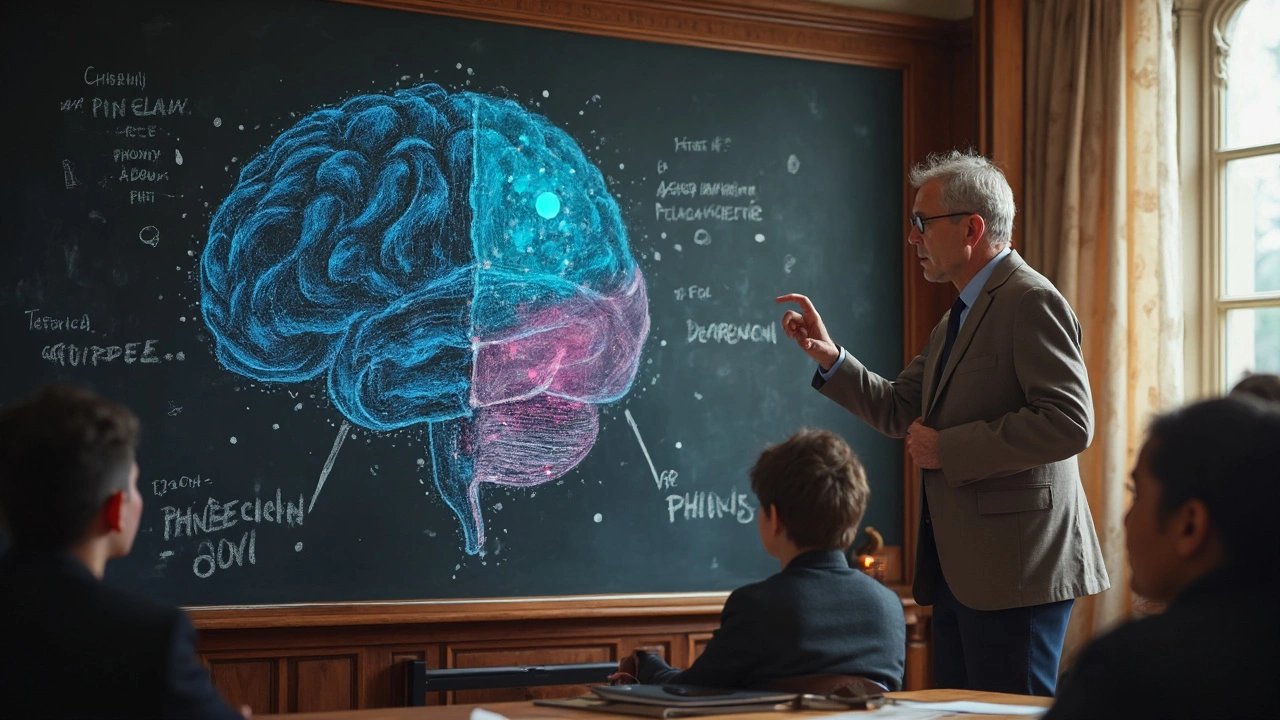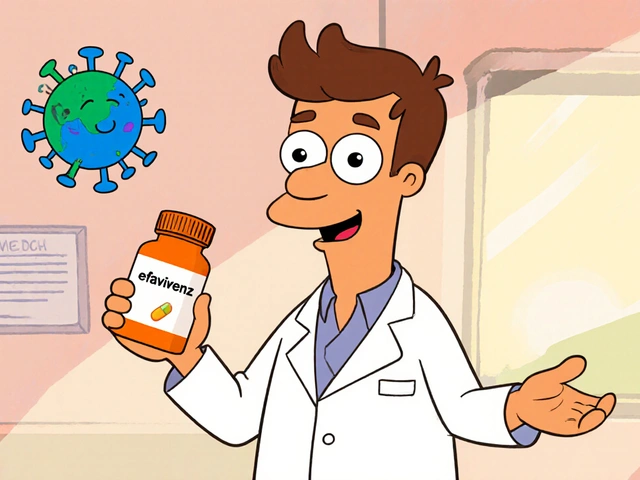Social Pain Hurts Like Physical Pain—And Here’s the Proof
Ever get dumped and feel actual chest pain? Or get left out of a group chat and feel your gut clench, almost as if you’d fallen and scraped your knee? Turns out, that’s not just your imagination messing with you. Researchers at the University of California, Los Angeles, ran brain imaging studies showing the same regions that light up with physical hurt—mainly the anterior cingulate cortex—also fire when we feel emotionally left out or rejected. Our brains, for all their fancy logic, honestly can’t tell the difference between a breakup and a bruise. It’s wild how the brain treats an icy stare—rejection in a conversation or getting left on read—almost like a slammed finger. That means the sting you feel when someone ditches your birthday is real pain, not just “all in your head.”
What makes social pain so devastating is how our minds hold onto it. If you’re anything like me, you can remember a cringe moment from middle school way more vividly than a stubbed toe from last week. Social wounds shape how we act, make friends, and even trust people. This overlap in brain responses sparked researchers to wonder—if a painkiller like acetaminophen (the main stuff in Tylenol) stops aches in the body, could it put the brakes on emotional pain, too?
Acetaminophen: Not Just for Headaches (The Science of Emotional Pain Relief)
The real curveball hit in 2010 when Naomi Eisenberger and her team at UCLA handed out acetaminophen to one group of university students and sugar pills to another, then put them into situations that made them feel left out or rejected. They used a virtual game called Cyberball, where two players “throw” a digital ball—in reality, they gradually exclude the test subject. Most people get flustered, even upset—rejection always stings. Here’s the twist: those who took acetaminophen actually reported feeling less social pain. Brain scans backed them up. The anterior cingulate, the part of the brain that’s supposed to scream “this sucks!” got way quieter.
Does that mean you should down Tylenol before every awkward family dinner? Not so fast. But this research forces us to think bigger about how emotional and physical pain overlap. Later studies, like one out of the University of Toronto, went even deeper. People who took acetaminophen felt blunted not just in pain but also in positive feelings. Their highs weren’t as high. That’s a huge trade-off—and worth thinking about. But for those who face chronic emotional pain—think grief, heartbreak, deep embarrassment—something as simple as acetaminophen makes a surprising difference, at least for a little bit.
Want the nitty-gritty? You can read a detailed acetaminophen social pain study and see how this everyday medicine works in your brain, not just your body.

How Does Acetaminophen Change Your Feelings?
If you’re picturing acetaminophen as some wonder drug that instantly erases every bad breakup, slow down. It’s not magic—it’s chemistry. Acetaminophen doesn’t work like antidepressants, which target brain chemicals like serotonin or dopamine. This pill blocks specific enzymes involved in making chemicals called prostaglandins, which usually amp up pain signals whether you break your arm or your heart. MRI images captured during social exclusion tests show the brain’s hurt response dulls, almost as if the volume is turned down. That means you’ll probably still notice emotional pain, but it feels less sharp.
This subtle shift is kind of a big deal. It suggests our brains might use the same basic pathways for all hurt—whether someone cuts you off in traffic or you sprain your ankle. Here’s one weird fact: researchers even found that people taking acetaminophen were less likely to get “revenge cravings” after feeling rejected. They just didn’t care as much about payback. Ever wish you could let things go as easily as my friend Max, who shrugs off even the rudest comments? Maybe he’s got the brain profile of someone who’s just popped a Tylenol.
But here’s a curveball: while acetaminophen blunts pain, it also takes the edge off happiness. People in these studies get less excited by positive events. So, if you’re reaching for a pill after a painful break-up, know you might also be muting the good stuff—like finally getting that "you’re cute" text from a crush.
Practical Tips for Managing Social Pain (With or Without Acetaminophen)
All this talk about science and pills can make it easy to forget: life isn’t run in a lab. Social pain is part of being human, and a pill won’t make it vanish forever. Still, if you’re stuck replaying an embarrassing moment or rejection, here are some tricks (beyond just reaching for the medicine cabinet):
- Move your body. Exercise pumps your brain with feel-good chemicals. When Fiona and I go hiking after a rough week, it’s amazing how much lighter the world feels.
- Journaling gives your feelings structure. Instead of letting your thoughts spiral, put them on paper. It’s cheap, safe, and nobody else has to read it.
- Talk it out. Call a trusted friend or your partner. Sharing wounds actually dials down the pain on a physical, measurable brain level—no pills needed.
- Practice mindfulness. Breathing exercises can ease both body and mind pain. Try focusing for sixty seconds on just your breath when those intrusive memories attack.
- Choose your distractions. Watching a comfort show or doing a puzzle won’t fix the source of pain, but they can move your brain’s attention away from it enough to get through the worst moments.
If you do take acetaminophen, always follow package directions. It’s safe in small doses but can damage your liver if you overdo it. No one needs a heartbreak and a hospital trip.

The Big Questions: Should You Medicate Emotional Pain?
This is the million-dollar question, right? We use painkillers for headaches and sore muscles without blinking. But does that mean it’s a good call for every emotional wound? Some mental health experts argue that numbing pain too quickly can make us avoid dealing with the real problem. Acetaminophen is useful for short-term relief—like if you need to get through a big work meeting right after catching tough news. For chronic, deep pain (say, after a loss or trauma), pairing medication with therapy and support is the smarter route. Science is still figuring out the long-term tradeoffs. One concern: could blunting both good and bad feelings leave us more numb in daily life? That might make it harder to spot joy when it actually arrives—or respond to new opportunities because nothing feels urgent anymore.
The best tip? Treat acetaminophen for emotional pain like you would an ice pack. It’s good for taking down the swelling but won’t heal your heart on its own. Combine it with strategies like talking, moving, and letting yourself feel the lows and highs. Pain is a signal, not just something to run from. Sometimes it wakes us up to what really matters—and that, even scientists agree, is not something you can get over the counter.

 Exploring 5 Top Alternatives to Wellbutrin SR
Exploring 5 Top Alternatives to Wellbutrin SR
 Efavirenz and Blood Pressure: Essential Facts and Management Tips
Efavirenz and Blood Pressure: Essential Facts and Management Tips
 Fall Risk Medications for Seniors: Which Drugs Increase Injury Risk?
Fall Risk Medications for Seniors: Which Drugs Increase Injury Risk?
 How to Buy Online Cheap Generic Claritin Safely in Australia
How to Buy Online Cheap Generic Claritin Safely in Australia
 Why American Mistletoe is the Perfect Addition to Your Daily Supplement Routine
Why American Mistletoe is the Perfect Addition to Your Daily Supplement Routine
Noah Cokelaere
July 18, 2025 AT 02:31Wow, so acetaminophen isn't just that boring little pill you pop for a headache? That's kind of wild. I mean, who knew the same stuff that chills out your brain's physical pain circuits can also take the edge off that soul-crushing social rejection?
It's like our brains don't care if it's a stubbed toe or a friend ignoring our texts — the hurt feels kinda the same. Honestly, this makes me wonder if we're just walking bundles of tiny pains, both physical and emotional, all the time.
Also, are there any downsides to using acetaminophen this way? Like, could we end up emotionally numb or something if we rely on it too much? Because if heartache had a quick fix, some people might become dangerously addicted to the feeling of not feeling.
This kind of research could open doors for how we treat stress and emotional trauma, but it sounds like a double-edged sword. Still, props to science for turning a simple painkiller into a social painkiller. How weird and cool.
Ashley Helton
July 18, 2025 AT 03:31Right?! The way they explain the overlap between physical and social pain kinda blows my mind. I always thought emotional pain was so different, more complex, but nope, turns out your brain just kinda lumps it together.
And lol, imagining people popping Tylenol after a breakup like "Yeah, gimme the 500mg heartbreak relief please!" Definitely feels like the future. But like you said, there’s gotta be caution here, can’t just anesthetize our feelings forever.
I'd love to see how this research evolves. Maybe someday we’ll have a drug that takes the sting out of social anxiety at parties? Imma bring some acetaminophen next time I have to do small talk.
Brian Jones
July 18, 2025 AT 04:33My dudes and dudettes, I see y’all vibing with the idea of a social painkiller. But let’s not get it twisted—this is a philosophical rabbit hole wrapped in a clinical trial, wrapped in an over-the-counter pill.
We have to ask ourselves: if emotions can be pharmacologically muffled, what does that mean for human experience and growth? Are we talking about a tool for healing or a crutch for avoidance? Emotional pain, while brutal, shapes our existence; I’d hesitate to numb it without some serious consideration.
Plus, full disclosure, those of us who’ve mused too long about feelings probably appreciate the complexity of pain as a teacher. But hey, if tylenol can ease the sting when life gets ugly, maybe we just need a little break sometimes... just don’t get addicted to emotional anesthesia, folks.
What do y’all think—is this a neat scientific breakthrough or a slippery slope?
Carlise Pretorius
July 18, 2025 AT 05:33Wow this is super interesting i had no idea the brain worked that way honestly. so like taking acetaminophen could actually help if a friend ghosted you or if you got embarrassed at work? wild stuff.
but also kinda scary tho, like will it make ppl not feel real emotions anymore or just mask stuff for a bit? cuz sometimes pain is needed to grow and understand the world right.
but props to the science peeps doing these studies, they always amaze me how they link physical and mental health in unexpected ways. maybe next time im sad i might try it out idk haha
Johnson Elijah
July 18, 2025 AT 06:33Hey fam, this is some seriously dope info here!! 😲 I always thought pain was strictly physical or emotional in separate realms, but this research seems to be bridging that gap.
This definitely changes the game for how we cope with breaking up or any social lows. Like, maybe popping a pill can provide a quick reset when your mind is just spiraling.
Still gotta be careful tho, relying on meds for feelings can get tricky. Peace of mind is more than just numbing pain; it’s about understanding and growth. But 👏 to science for dropping these insights.
Anyone gonna try it or just me? 😂 Let’s hear your experiences or thoughts! 🙌
Roxanne Lemire
July 18, 2025 AT 07:33This actually makes me think about all the times I’ve taken acetaminophen and felt like I could deal better with emotional stuff too, but chalked it up to coincidence. Seems like maybe it’s legit working there as well.
Though I wonder how much research there is on long term use for emotional pain relief. Emotional pain is different from physical, like it’s less predictable and more layered.
Would definitely be cautious about recommending it for stress or heartbreak, but the underlying neurobiology connection is super fascinating to me.
Has anyone read about whether this affects mood positively or if it just dulls negative feelings? Because there’s a difference.
Alex Mitchell
July 18, 2025 AT 08:33I appreciate how this article shines a light on how intertwined our physical and emotional experiences really are. It’s like the brain doesn't draw a clear line between a throbbing headache and the ache of loneliness.
It’s fascinating but raises so many ethical questions about medicating our feelings. Are we on the verge of a cultural shift where popping pills replaces self-reflection or therapy?
Also curious about dosage and potential side effects if people start using acetaminophen more frequently for social pain relief.
Given how common acetaminophen is, this research might influence how we think about pain and healing on multiple levels. Thoughts on that?
Narayan Iyer
July 18, 2025 AT 09:33Guys, this phenomenon probably links up with nociceptive pathways that are activated in social exclusion as well as physical injury. It’s a fascinating neurological overlap that suggests how intertwined our somatosensory and affective pain components are.
The anterior cingulate cortex and insula might play pivotal roles here, as they’re known for processing both the sensory and emotional facets of pain. That acetaminophen modulates these circuits could explain the observed decrease in social pain perception.
This also raises complex questions about the neuropharmacology of 'emotional analgesics' and their possible benefits and risks. Are we simply dampening emotional salience or altering neuroplasticity underlying social experiences?
From a cultural standpoint, this challenges our understanding of pain as a multifaceted experience. Would love to see more large-scale double-blind trials examining these effects.
Amanda Jennings
July 18, 2025 AT 10:33I'm honestly a bit torn on this whole acetaminophen-as-social-pain-reliever idea. On the one hand, anything that helps lessen emotional suffering has gotta be good, right?
On the other hand, I feel like part of the human experience is embracing the full spectrum of emotions, painful or not. Taking a pill to numb emotional pain might make one miss out on the real growth that comes from dealing with it head-on.
That said, the science part is super intriguing. Maybe in small doses or short term use after a traumatic event it could be beneficial.
Would love to hear more personal stories or clinical trial results about how safe and effective this really is.
alex cristobal roque
July 18, 2025 AT 11:33First of all, the neurobiological mechanisms described here are quite compelling because they reinforce how the dorsal anterior cingulate cortex (dACC) acts on pain processing in both a nociceptive and social context. Acetaminophen’s modulation of the prostaglandin synthesis pathway likely attenuates neuroinflammation that underpins both physical discomfort and social distress.
As someone fascinated by psychopharmacology, it’s important to emphasize that while acetaminophen may blunt the acute affective component of rejection or embarrassment, it doesn’t address underlying cognitive schemas or relational patterns that cause social pain.
Thus, its role could be adjunctive rather than a standalone solution. Extended or indiscriminate use may disrupt natural emotional processing and resilience.
Careful longitudinal studies could elucidate whether this pharmacological approach to emotional pain leads to better functional outcomes or behavioral avoidance.
Bridget Dunning
July 18, 2025 AT 12:33This burgeoning research field, indeed, raises both philosophical and clinical questions of immense profundity. The seminal understanding that overlapping neurocircuitry processes physical and social pain challenges traditional dichotomies of somatic versus affective suffering.
Acetaminophen’s dampening effect might well serve as a useful adjunct in tempering acute distress, yet such intervention must be accompanied by robust psychotherapeutic paradigms to nurture long-term emotional resilience.
Furthermore, it behooves us to critically interrogate potential ramifications such as emotional blunting and the attendant sociocultural implications. Could we possibly tread a slippery slope toward pharmacologically induced emotional disengagement?
Ultimately, an interdisciplinary dialogue bridging neuroscience, ethics, and psychology is imperative to responsibly navigate this promising yet intricate domain.